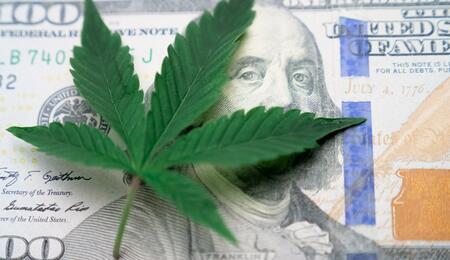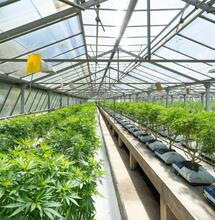LA county seizes $1 billion of weed in record drug bust.

Authorities seized more than 370,000 marijuana plants and harvested products with an estimated street value of $1 billion in the most considerable eradication effort in Los Angeles County history.
131 people were arrested, and more than 33,480 pounds of harvested marijuana (16 tons) was seized during a 10-day operation in the Antelope Valley north of Los Angeles.
The operation involving hundreds of law enforcement officers still only managed to reach about 40% of the illegal grows that officials had identified. 205 of 500 illegal grows identified from the air were shut down and the cannabis destroyed. Statistics that officials said highlight the problem of organised drug trafficking groups.
Rep. Mike Garcia, representing the area, has stated how he has spotted many illegal greenhouses first-hand by helicopter.
"I saw hundreds of these illegal nurseries throughout our desert being manned by primarily illegal immigrants, some of which are armed", Garcia said. "Over 90% of the folks working these farms are indentured servants of some form."
At a press conference, officials wanted to clarify that this was not a war on the legal cannabis business and that these farms were not small-scale "Mom and Pop" domestic grows. They are large-scale illegal operations, consisting of dozens of greenhouses, that are being run and protected by drug cartels.
The record bust eradicated only a tiny fraction of the illicit grows in the Antelope Valley north of Los Angeles. A problem that has grown tremendously during the COVID-19 pandemic and which is detrimental to the legal market.
California legalised recreational cannabis back in 2016, with sales beginning in 2018. However, the black market continues to thrive as heavy legal taxes increase prices and send consumers back to illegal suppliers for a better deal.
Antelope Valley is a high desert area and home to protected species such as the Mohave ground squirrel, desert tortoise and the legendary Joshua tree. Concerns were high as the illegal growers have been stealing millions of gallons of water from hydrants and illegal wells and dumping toxic chemicals that can poison the environment.
Growers are further damaging the region by cutting down trees to erect greenhouses and harming the general population of wildlife by blocking streams and polluting the water with trash and pesticides.
"There's a lot of important critical species that are out there that need their habitat to thrive and to survive," said Chloe Hakim, a biologist with the state department of fish and wildlife.












